SUMMARY
VENOM: Very mild - no known danger
PREVALENCE: Somewhat common
ACTIVE PERIOD: Active at night
KEY ID FEATURES: Light orange to peach body with small dark spots, long tail with slender neck and olive green to dark grey head
BEHAVIOR: Largely arboreal, will move into 'S' position and bite defensively
SIZE: Medium - 80-110cm
OTHER: Rear fanged and technically venomous but not known to be dangerous to humans
QUICK ASSESSMENT 0-10
GALLERY
IMPORTANT: Many snakes have significant variance in coloration and pattern even within the same species. There can also be extreme differences in appearance from juveniles to adults so it is important to never assume you have properly identified a snake.
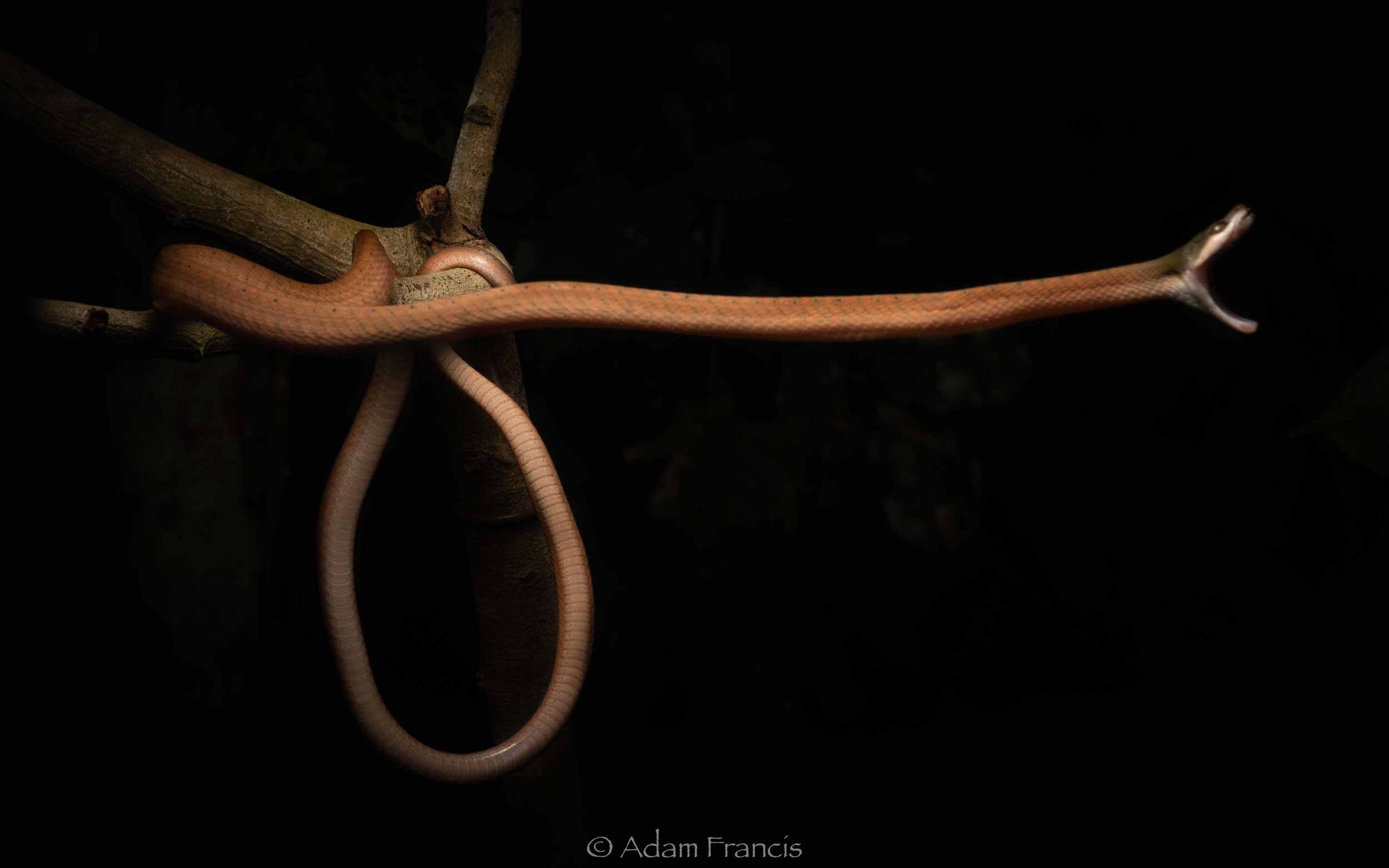
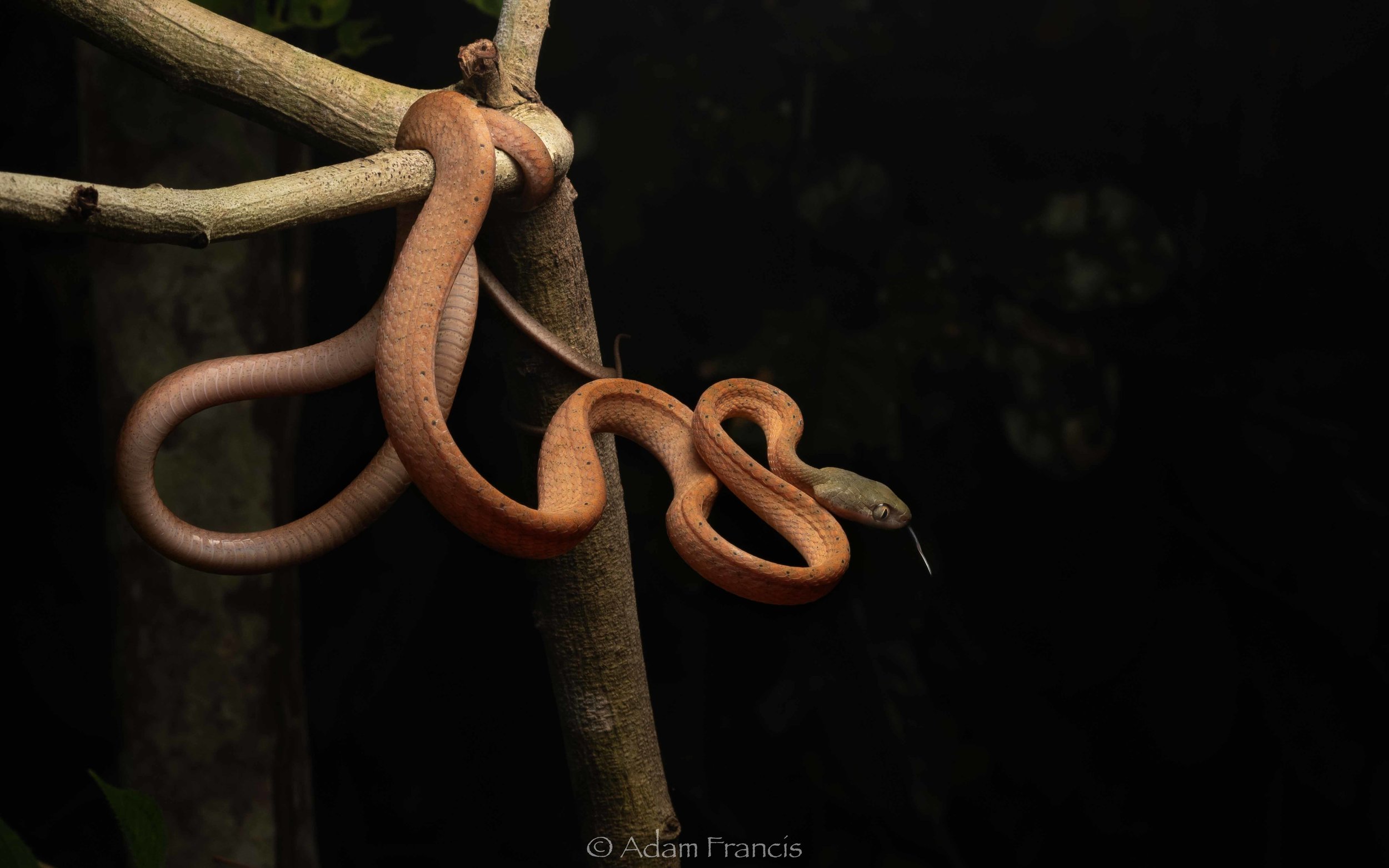
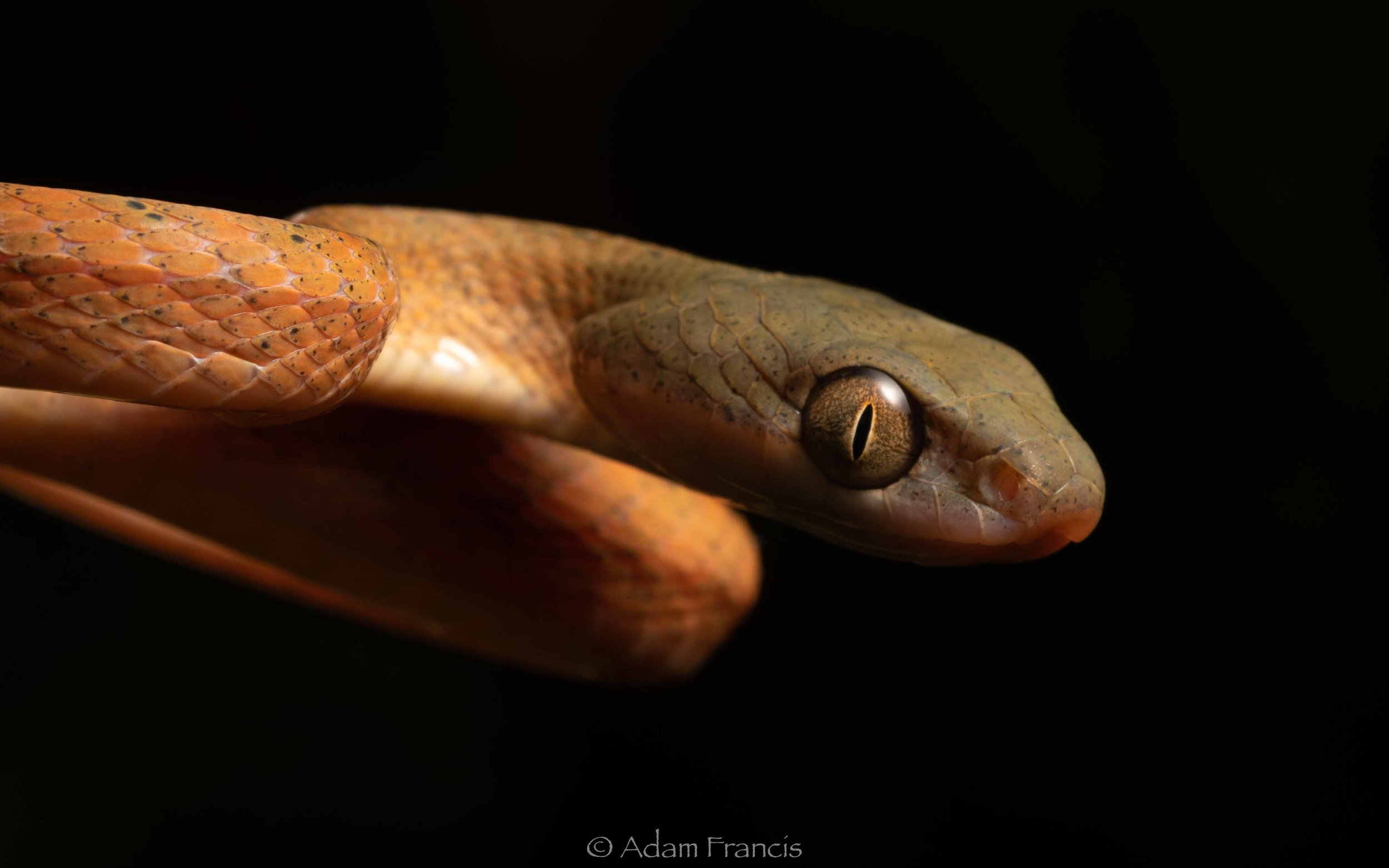
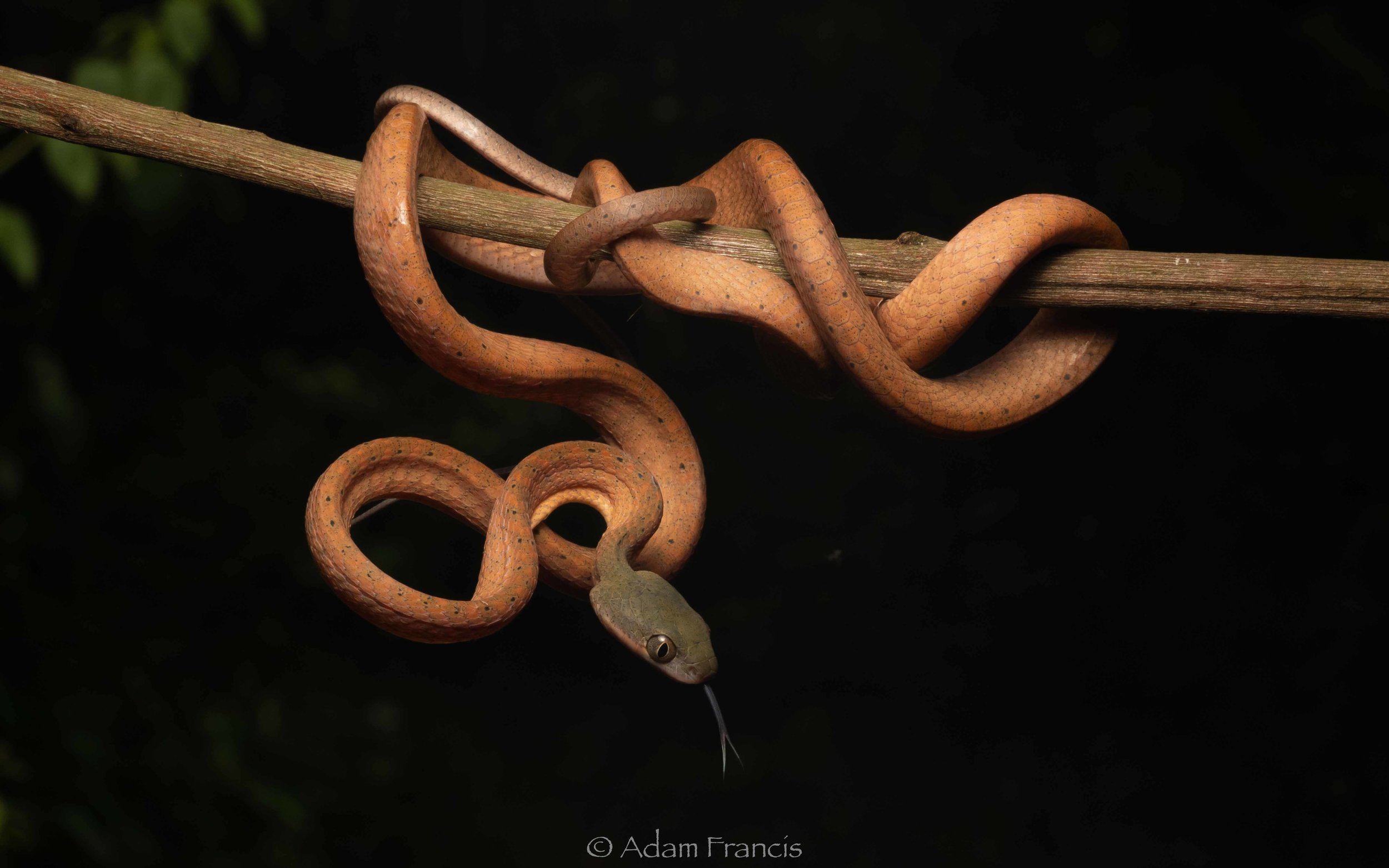
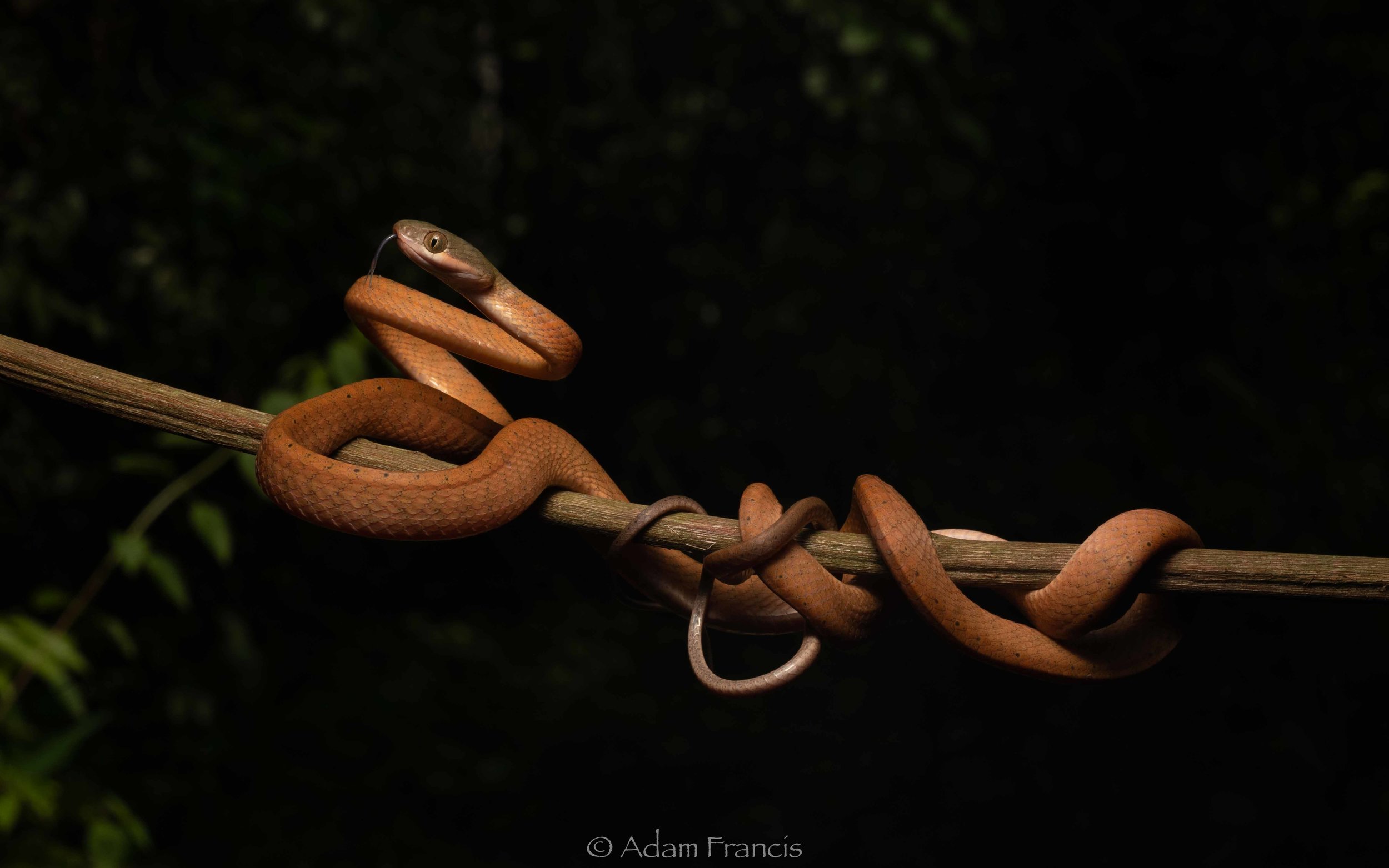
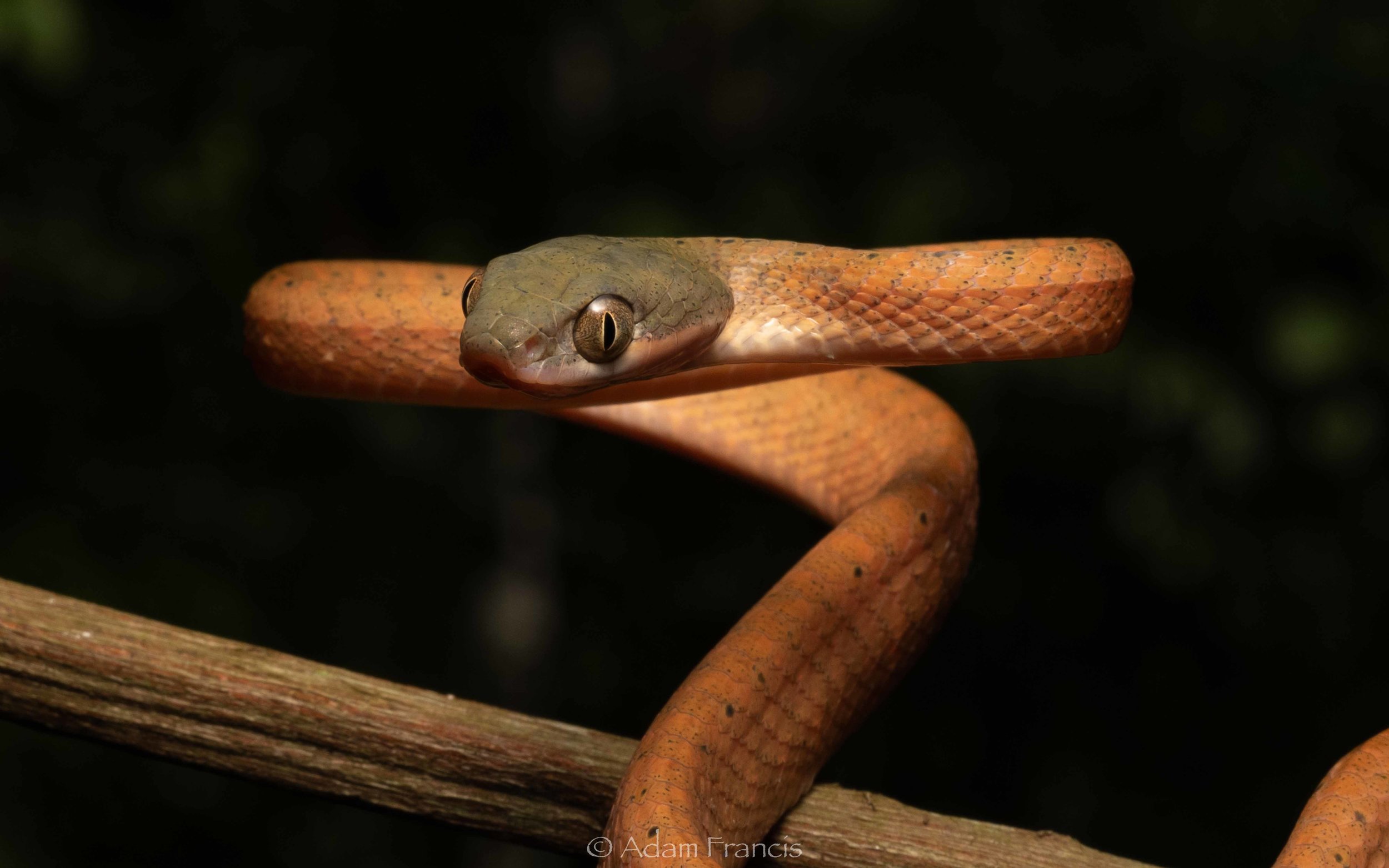
DESCRIPTION
Usually light orange to peach body with small dark spots. Head is olive green to dark grey with faint small dark spots only visible up close. Large green/gold eyes with vertical pupils. Black Headed Cat Snakes are largely arboreal and have long thin necks with exceptionally long thin tails. Head can flatten slightly when defensive appearing similar to vipers. light pink belly and an oval shaped body. As a technically rear fanged snake they are mildly venomous but there are no known cases of serious envenomation.
BEHAVIOR
The Black Headed Cat Snake is a largely arboreal snake and as such is prone to seek out high ground when confronted. They also commonly display initial aggressive behavior by positioning their front half into a defensive 'S' position. They will strike with largely false bites and occasionally real hits, but their diminutive size renders any genuine bite relatively harmless.
HABITAT
Due to their largely arboreal nature Black Headed Cat Snakes are generally found in forested areas, often close to some water source. They have also been observed hanging from branches over water possibly hunting for fish or amphibians. During the day they hide in hollow logs or under ledges closer to the ground.
MISTAKEN IDENTITY
NO SNAKE SHOULD EVER BE HANDLED BY ANYONE BUT EXPERTS: The Black Headed Cat Snake is a relatively uniquely patterned snake and is difficult to mistake with other species especially when considering their arboreal behaviors.

